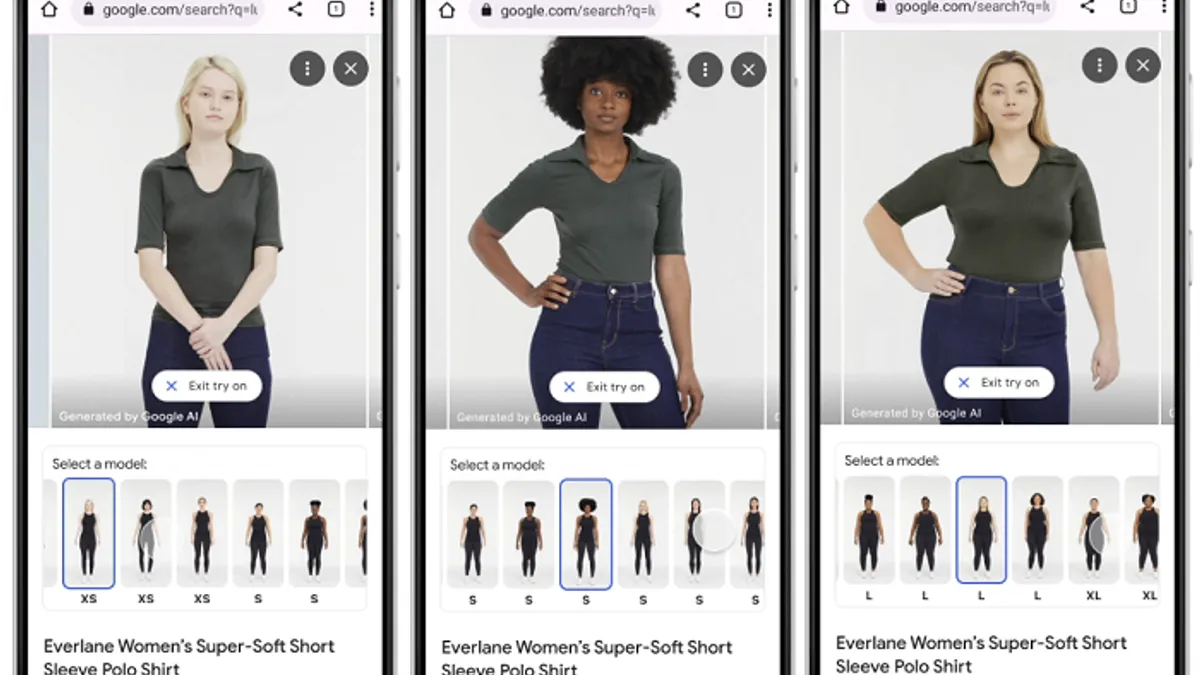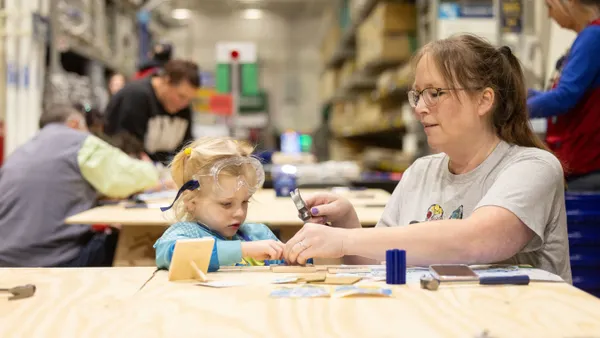Dive Brief:
- In an attempt to replicate the fitting room online, Google has released a new virtual try-on tool using generative artificial intelligence that is available through its search engine, the company announced on Wednesday. It is only usable on women’s tops to start.
- Shoppers can hit products with a “Try On” badge to select a model to virtually try on tops from brands like H&M, Loft, Everlane and Anthropologie. The technology will help consumers visualize how the garments may look on people ranging from size XXS to 4XL, with different skin tones, body shapes and hair types.
- Google has also improved its shopping filters so that users can refine their search using color, style and pattern. The filters, available for tops to start, use machine learning and visual matching algorithms.
Dive Insight:
Google released its virtual try-on tool in response to online shopping frustrations. According to a survey Google conducted with Ipsos in April with 1,614 U.S. adults, 59% of respondents are unsatisfied with products they buy online because they looked different on them than anticipated.
In its blog post, Google hinted at its plans to adopt the AI technology to enhance online shopping for other items as well. The company said it aims to launch a virtual try-on tool for men’s apparel, including tops, sometime later this year.
“Our new generative AI model can take just one clothing image and accurately reflect how it would drape, fold, cling, stretch and form wrinkles and shadows on a diverse set of real models in various poses,” Lilian Rincon, senior director of product and shopping, wrote in a company blog post.
Like Google, other tech companies and retailers have caught on to consumers’ desire for more reliable online shopping experiences. In recent years, Snap has used augmented reality for various virtual try-on efforts, including partnerships with brands like American Eagle, Gucci and Men’s Wearhouse. According to a Snap survey from June 2022, eight in 10 respondents are more confident in their buying decisions after using AR shopping tools.
Meanwhile, Walmart has also tried its hand at virtual try-on tools for shoppers. In September, the retail giant introduced its Be Your Own Model product visualization tool, enabling shoppers to upload full-body images of themselves to view what their desired apparel might look like on their bodies. The company released the tool after buying virtual fitting room startup Zeekit for an undisclosed amount in 2021.














